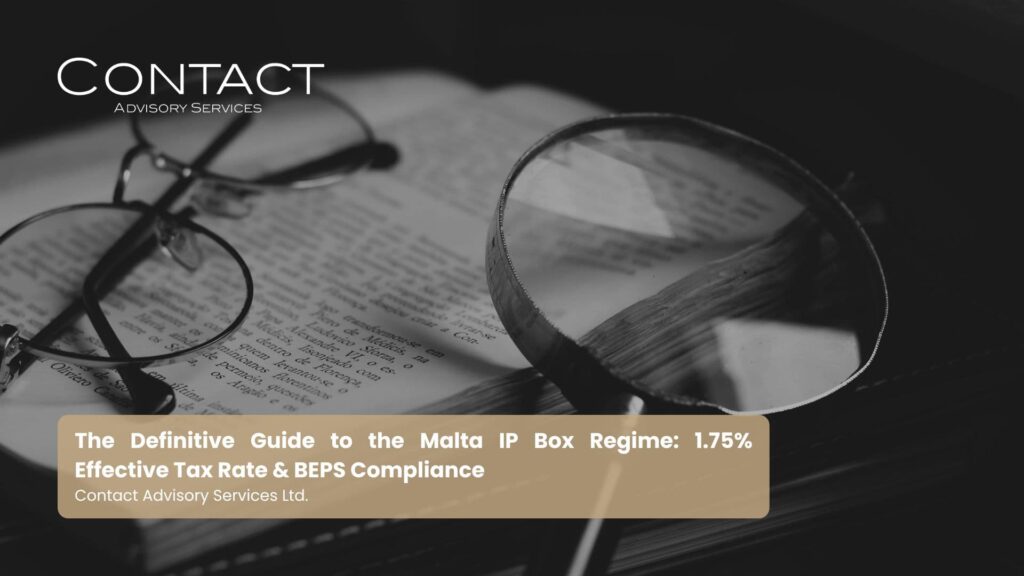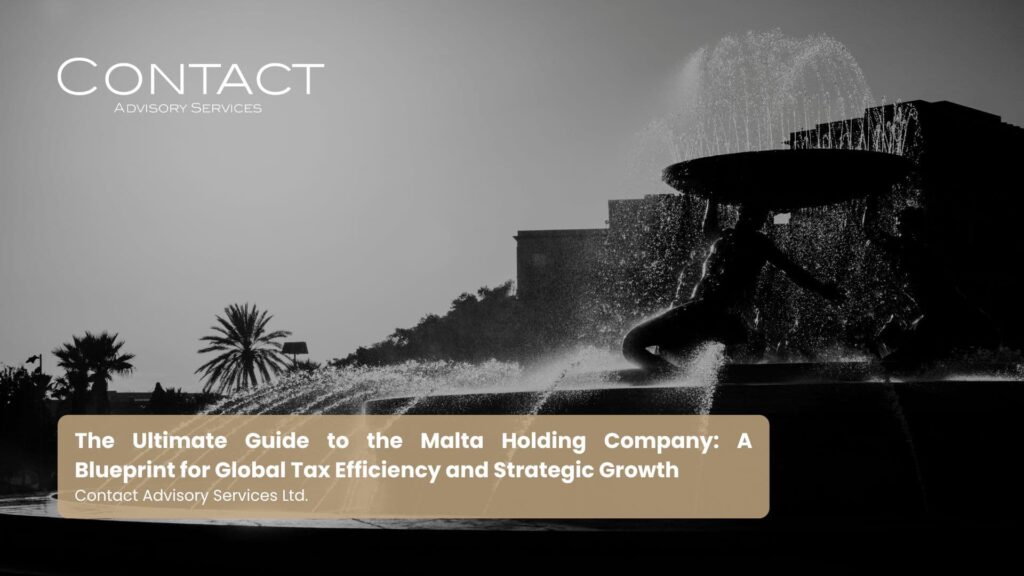Malta PLC vs. Ltd: Choosing the Right Engine for Your Business Growth
Embarking on the journey of Malta company formation is an exciting step, placing your business within a strategic EU hub known for its pro-business environment and favourable tax regime. But before you dive headfirst into registration, you face a critical decision: selecting the right legal structure. For most businesses considering Malta, this often boils down to a fundamental choice between a Private Limited Company (Ltd) and a Public Limited Company (PLC).
While both offer the significant advantage of limited liability, they are designed for vastly different scales, ambitions, and operational models. Choosing the wrong structure can hinder your growth, burden you with unnecessary compliance, or limit your future funding options. Conversely, selecting the right structure provides a solid foundation perfectly aligned with your trajectory.
So, how do you decide? Is the widely popular, flexible Ltd the right fit, or do your growth plans necessitate the more robust, capital-raising potential of a PLC?
This comprehensive guide will dissect the core differences between a Malta PLC vs Ltd. We’ll compare their key characteristics head-to-head – from share capital and governance to regulatory demands and suitability for different business stages. Our goal is to equip you with the knowledge needed to make an informed decision, ensuring the company structure you choose becomes a powerful engine, not an anchor, for your business growth in Malta.
The Cornerstones: Understanding Malta Ltd and PLC Basics
Before diving into the comparison, let’s briefly define each structure within the Maltese context:
- Malta Private Limited Company (Ltd): This is the most common form of company registration in Malta. It’s a separate legal entity owned by shareholders, offering limited liability protection. Crucially, its shares cannot be offered to the general public, and it typically has fewer regulatory requirements than a PLC. It’s favoured by startups, SMEs, family businesses, and subsidiaries.
- Malta Public Limited Company (PLC): A PLC is also a separate legal entity with limited liability, but it is designed for larger operations and, most importantly, can offer its shares to the public (e.g., through listing on a stock exchange like the Malta Stock Exchange). This ability to raise capital publicly comes with significantly higher minimum capital requirements and stricter regulatory oversight.
While both shield personal assets, their purpose, scale, and regulatory landscapes differ dramatically.
Malta PLC vs. Ltd: A Head-to-Head Comparison
Let’s break down the critical differences point by point:
1. Core Purpose & Target Audience:
- Ltd: Designed for privately held businesses. Ideal for startups testing the waters, small to medium-sized enterprises (SMEs), family-run operations, holding companies, and subsidiaries of larger groups not requiring public funding. Focus is often on operational control and simplicity.
- PLC: Structured for companies aiming for significant scale, requiring substantial capital, and potentially seeking investment from the public via share offerings or a stock exchange listing (IPO). Suitable for large enterprises, companies with ambitious growth plans needing external equity funding, and those seeking the enhanced prestige associated with public status.
2. Minimum Share Capital: A Major Divide:
- Ltd: Requires a minimum authorized share capital of €1,164.69. At least 20% of this (€232.94) must be paid up before registration. This relatively low threshold makes it highly accessible.
- PLC: Mandates a significantly higher minimum authorized share capital of €46,587.46. At least 25% of this amount (approximately €11,646.87) must be paid up prior to incorporation. This reflects the larger scale and public nature intended for PLCs.
3. Offering Shares to the Public:
- Ltd: Prohibited from offering its shares or debentures to the public. Share transfers are typically restricted by the Articles of Association.
- PLC: Permitted (and often designed) to offer shares and debentures to the public, subject to strict prospectus requirements and regulations, especially if listing on a stock exchange. Shares are generally freely transferable unless restricted by the Articles.
4. Minimum Number of Shareholders:
- Ltd: Requires a minimum of one shareholder (can be the same person as the director).
- PLC: While Maltese law doesn’t explicitly state a minimum number of shareholders for a PLC different from an Ltd, it does require a minimum of two directors. Logically, and in practice for a public entity, it’s generally assumed and required that a PLC will have at least two shareholders upon formation or shortly thereafter, especially if seeking public investment.
5. Minimum Number of Directors:
- Ltd: Requires a minimum of one director.
- PLC: Requires a minimum of two directors, reflecting the need for more robust governance in a public-facing entity.
6. Company Secretary:
- Ltd & PLC: Both structures require the appointment of at least one individual (not a corporate body) as Company Secretary. The responsibilities are generally similar, focusing on statutory compliance, but the complexity might be higher in a PLC due to increased regulatory filings.
7. Regulatory Burden & Compliance:
- Ltd: Subject to standard compliance requirements – filing annual returns, maintaining accounting records, potentially simplified financial reporting for smaller entities, and possible audit exemptions based on size.
- PLC: Faces significantly stricter regulatory scrutiny and reporting requirements. This includes more detailed financial reporting (often mandatory audits regardless of size), adherence to corporate governance codes (especially if listed), stringent rules on share allotments and capital maintenance, and extensive disclosure requirements if offering shares publicly.
8. Credibility & Prestige:
- Ltd: Offers good business credibility, recognised as a formal legal structure.
- PLC: Generally perceived as having higher prestige and credibility, particularly if listed on a stock exchange. This status can be advantageous when dealing with large international partners, seeking significant loans, or attracting institutional investors.
9. Setup Complexity & Costs:
- Ltd: Relatively straightforward and cost-effective setup process. Lower minimum capital makes it less demanding financially at the outset. The overall Malta company registration process is quicker.
- PLC: More complex and costly setup due to higher share capital requirements, potentially more intricate M&A drafting, stricter due diligence, and potentially needing legal/financial advisors specialised in public offerings if applicable.
10. Flexibility vs. Formality:
- Ltd: Offers greater operational flexibility. Internal governance can be tailored more easily through the Articles. Suitable for businesses where ownership and control are closely held.
- PLC: Operates within a more formal and rigid framework dictated by stricter regulations. Less flexibility in internal governance compared to an Ltd.
Deep Dive: When is a Malta Private Limited Company (Ltd) Your Best Bet?
The Malta Ltd shines brightest in specific scenarios:
- Startups & SMEs: The low entry barrier (share capital), simpler compliance, and flexibility make it ideal for new ventures and growing businesses not yet ready for public markets.
- Family Businesses: Provides liability protection while allowing control to remain within the family. Share transfer restrictions can be easily implemented.
- Subsidiaries: Foreign companies often use Malta Ltds to establish operational subsidiaries in the EU, benefiting from the tax system and market access without the complexities of a PLC.
- Holding Companies: Its structure and potential tax efficiencies make it suitable for holding assets or shares in other companies, especially within international group structures.
- Businesses Prioritizing Privacy: For owners who prefer not to have their company affairs subject to the intense scrutiny associated with public markets, the Ltd offers a greater degree of privacy.
The Ltd provides a solid, credible structure for the vast majority of businesses undertaking Malta company formation, offering protection and flexibility without the heavy compliance load of a PLC.
Deep Dive: When Should You Consider a Malta Public Limited Company (PLC)?
Choosing a PLC is a strategic move typically reserved for businesses with specific, large-scale ambitions:
- Seeking Public Capital: The primary driver is the need or desire to raise significant capital by selling shares to the public, often through an Initial Public Offering (IPO) on the Malta Stock Exchange or another market.
- Large Established Enterprises: Companies with substantial operations, significant revenue, and complex structures may find the PLC framework more appropriate, reflecting their scale and governance needs.
- Enhanced Credibility for Major Deals: Businesses needing the highest level of corporate prestige for securing large contracts, attracting institutional investors, or engaging in major international joint ventures might opt for a PLC.
- Ambitious Growth & Expansion Plans: If rapid, large-scale expansion fuelled by external equity is the core strategy, the PLC structure provides the necessary vehicle.
- Employee Share Schemes: While possible in Ltds, large-scale employee share option schemes can sometimes be easier to manage within the PLC framework, especially if shares are listed.
Opting for a Malta PLC is a significant undertaking. It signals major league ambitions but comes with demanding responsibilities. It’s a decision that requires thorough planning, expert advice, and readiness for a higher level of transparency and regulation.
Making the Right Choice for Your Growth Trajectory
Choosing between a Malta Ltd and PLC isn’t just about current size; it’s about future ambition and growth strategy. Ask yourself:
- Funding Needs: How do you plan to fund your growth? Bootstrapping/private investment (favours Ltd) or public markets/IPO (requires PLC)?
- Scale of Operations: Are you aiming for SME scale or large enterprise/multinational status?
- Exit Strategy: Could a future exit involve selling shares publicly (potentially favouring a PLC structure down the line)?
- Tolerance for Regulation: Are you prepared for the significant compliance and reporting burden of a PLC, or does the simplicity of an Ltd better suit your resources?
- Need for Prestige: Is the enhanced credibility of a PLC essential for your target market or partners?
- Control: How important is maintaining tight control over ownership and decision-making (easier in an Ltd)?
Actionable Tip: It’s often easier to convert a Malta Ltd to a PLC later if growth demands it, than it is to start as a PLC unnecessarily. Many successful large companies began life as private limited companies. Carefully consider your 5-10 year plan.
Navigating the Decision: The Importance of Expert Guidance
Selecting the optimal legal structure is a foundational decision with long-term implications for your business growth in Malta. The nuances between a Malta PLC vs Ltd – involving share capital, governance, compliance, and strategic alignment – can be complex.
Missteps at this stage can lead to costly restructuring later or hinder your ability to achieve your objectives. This is where professional guidance becomes invaluable.
Contact Advisory Services Ltd., as an MFSA Authorised Company Services Provider, specialises in helping businesses navigate these critical choices. We don’t just process paperwork; we help you understand the strategic implications of each structure. Our team can:
- Analyse your business model, funding plans, and growth ambitions.
- Clearly explain the practical requirements, costs, and ongoing obligations for both Ltd and PLC structures.
- Advise on the most suitable structure aligned with your specific circumstances.
- Guide you seamlessly through the entire Malta company formation process, whichever structure you choose.
- Provide ongoing support with compliance, company secretarial duties, and registered office requirements.
Making the right choice from the outset saves time, resources, and potential headaches down the road. Engaging with experts ensures your company registration in Malta is built on a solid, strategically sound foundation.
Explore your options further and understand the complete formation process.
Conclusion: Aligning Structure with Ambition
The choice between a Malta Private Limited Company (Ltd) and a Public Limited Company (PLC) fundamentally hinges on your business’s scale, funding strategy, and growth aspirations.
The Malta Ltd offers accessibility, flexibility, and robust liability protection, making it the ideal choice for the vast majority of startups, SMEs, family businesses, and subsidiaries entering the Maltese market. Its lower capital requirements and simpler compliance regime provide a strong yet manageable foundation.
The Malta PLC, in contrast, is the vehicle for significant scale, public capital raising, and enhanced corporate prestige. It comes with much higher entry requirements and a demanding regulatory environment, suitable only for businesses genuinely prepared for and requiring operation in the public sphere.
Ultimately, the “best” structure isn’t universal; it’s the one that best aligns with your specific journey. Carefully evaluate your immediate needs and long-term vision. Don’t overestimate your requirements early on, but ensure the chosen structure doesn’t unnecessarily cap your future potential.
Ready to discuss whether a Malta PLC or Ltd is the right fit for your business goals? Let our experienced team provide tailored advice.
Get in touch with Contact Advisory Services Ltd. today for a personalized consultation:
Email: info@contact.com.mt







